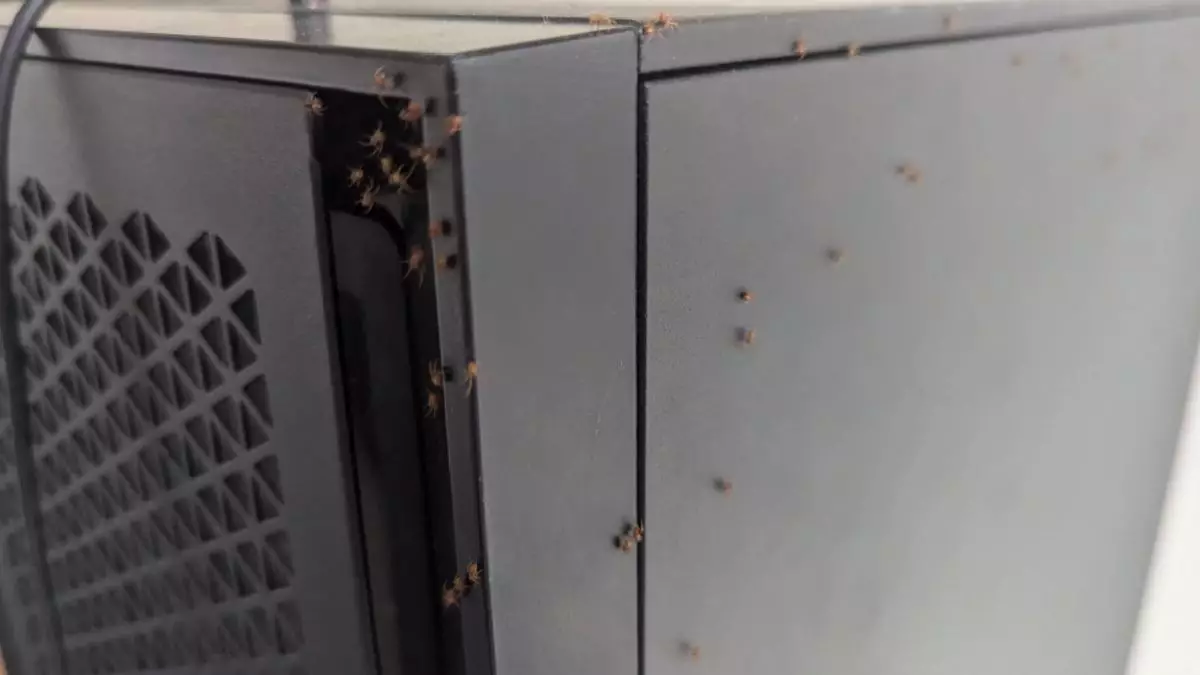When it comes to creepy crawlies, many people harbor a particular disdain for spiders. While I’m not paralyzed by arachnophobia, I find myself rather unsettled by the sight of these eight-legged creatures—especially when the setting is my cherished technology zone, particularly my personal computer. The anxiety heightens even further when confronted with a startling scenario that involves spiders invading this sacred space. Recently, I stumbled upon a viral post on Reddit that detailed a user’s chilling experience with spiders in their PC, and it compelled me to explore this phenomenon more deeply.
The post featured a user by the name of Duck_Shover, who discovered what appeared to be a spider egg nestled within the components of their computer. The ominous caption asked for advice on effectively handling the unusual infestation. This revelation sent shivers down my spine; I couldn’t help but conjure images of an overwhelming infestation. A single egg could lead to a swarm of baby spiders, and the thought of them crawling through the delicate machinery of a computer is nothing short of a nightmare for those of us who prefer to keep our technology critter-free.
But upon further investigation, the reality was less horrifying than expected. Duck_Shover clarified that the egg was located outside the computer case and that the number of baby spiders encountered, totaling anywhere from 50 to 100, was manageable. While this may seem like a minor sigh of relief, the knowledge that there were fuzzy little creatures crawling around the exterior of one’s device is still profoundly unsettling.
Duck_Shover’s calm approach to the situation caught my attention. Rather than succumbing to panic and wielding a flamethrower against the infestation, they opted for a more rational and effective method. The user decided to disassemble the computer’s panels to vacuum away the unwelcome guests. They even went the extra mile by cleaning their entire room and washing all their bedding. This level of consideration and thoroughness is commendable; it’s indicative of an individual who prefers actionable solutions over frantic reactions.
This brings up an interesting point about human psychology: under stress, we may either freeze up or adopt a proactive stance. In a world populated by many, those who remain level-headed amidst chaos are often celebrated. Duck_Shover’s response demonstrates that taking a moment to assess the situation can lead to effective outcomes even when confronted with something as distressing as a spider invasion.
On a broader scale, Duck_Shover’s tale illustrates the implications of maintaining a clean environment, particularly when it involves technology and electronics. Just as they did, we should all take the time to periodically inspect and clean our computer environments—not just for spiders, but for dust and other debris that build up over time. Regular upkeep not only enhances the aesthetics of our gadgets but also improves their performance and longevity.
Moreover, this experience serves as a reminder that awareness is key to preventing such situations from escalating. Keeping technological devices and surroundings clean may not put an end to every potential problem, but it certainly creates a first line of defense against uninvited guests, be they spiders, dust mites, or other nuisances.
Although I may never fully come to terms with the idea of sharing my personal space with spiders, Duck_Shover’s story emphasizes that it’s not the unknown creature itself that creates anxiety, but often our reactions and assumptions. Fear is often rooted in what we do not understand, and by examining our surroundings and remaining vigilant, we can prevent larger problems from arising.
So, while I personally would still prefer to avoid an encounter with any arachnids, I commend Duck_Shover for their fortitude in the face of a spider scare. As I ponder this tale, I urge all tech enthusiasts to take a moment to inspect their rigs. Who knows what surprises might lurk beneath the surface? A little caution can go a long way toward ensuring peace of mind in both technology and everyday life.


Leave a Reply